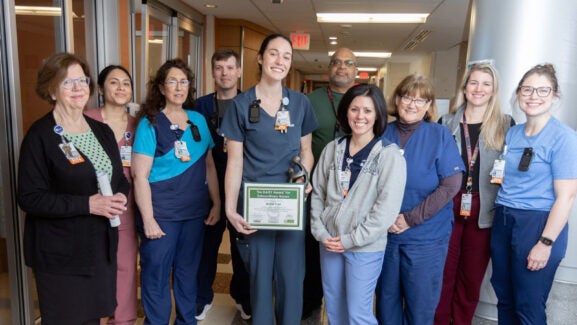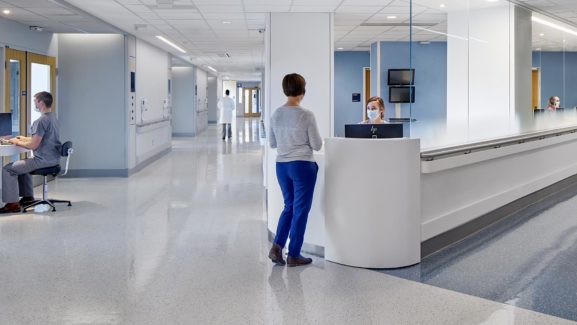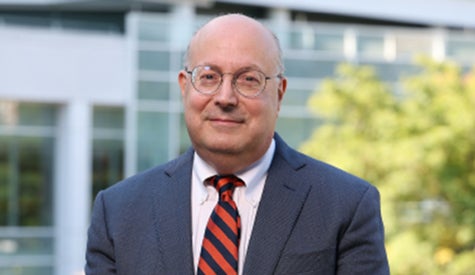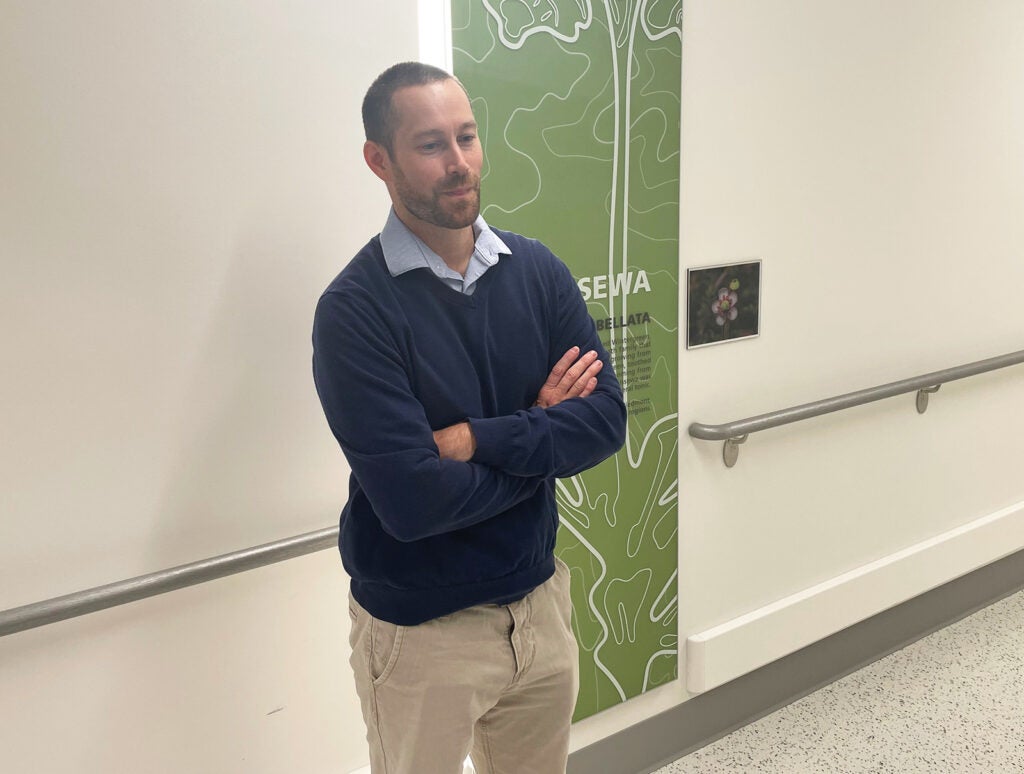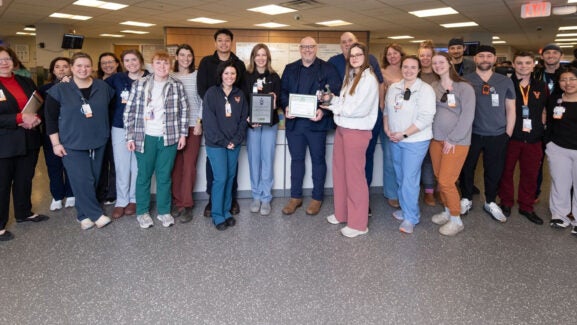
‘The Reason I’m Still Alive’: UVA Lecturer Hails Spouse, UVA Health, and Others for Saving Him in Cardiac Arrest
“Eight minutes can make the difference between living and dying, and I think the patient’s wife, Katie, demonstrated that here. Bystanders must intervene ...."
Andrew Walker is a program associate, lecturer, and master's alum of UVA School of Architecture's Urban and Environmental Planning. Earlier this year, he experienced a day just like any other — until it wasn't.
Andrew taught an evening class, returned to his Albemarle County, Virginia home, had dinner with his wife and two children, and went to bed. Later that night, he began making noises in his sleep.
His wife, Katie Walker, tried to wake up him, but initially, to no avail: “I got irritated enough that he wasn’t responding that I slapped him in the middle of his chest, and when I did, he let out a huge, gaspy inhale that just didn’t sound right! So, I turned on the light. His eyes were wide open and unresponsive.”
She called 911 and began chest compressions until the fire department arrived.
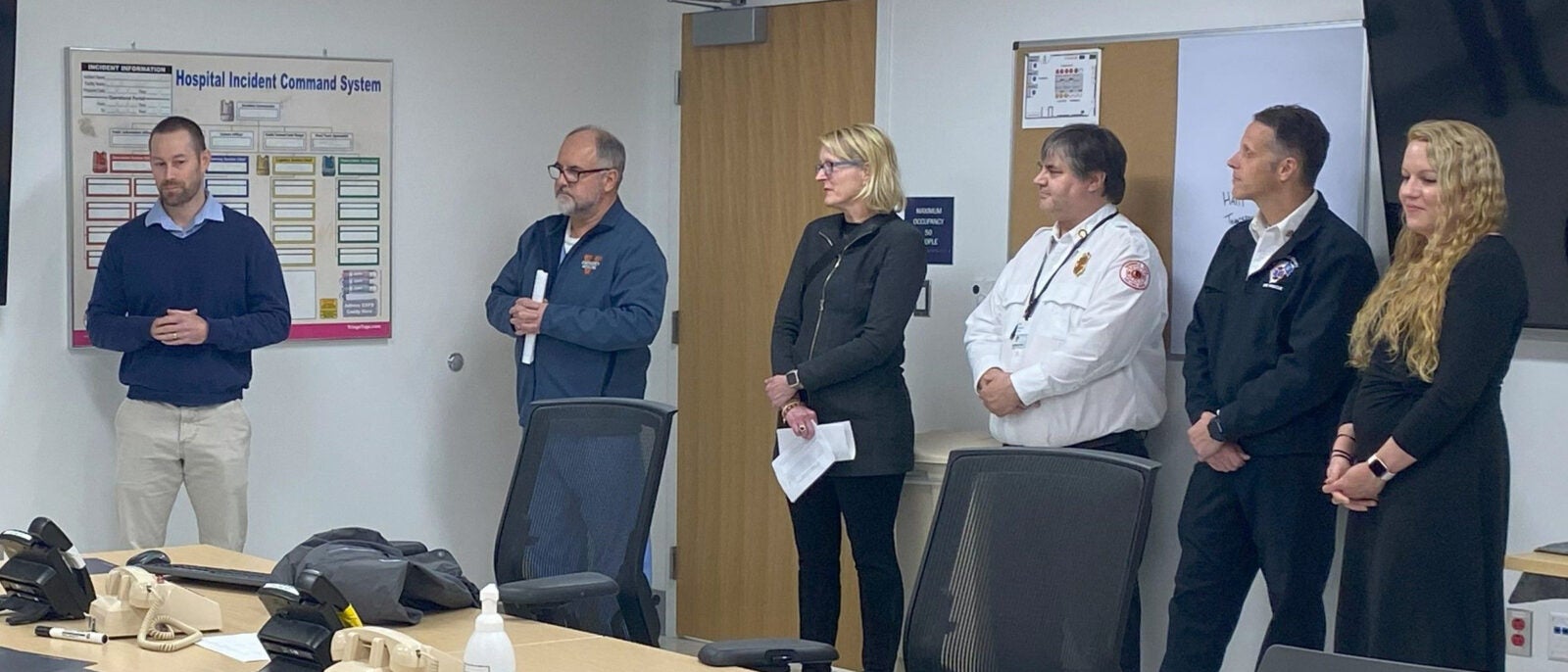
Bystander Care
“Eight minutes can make the difference between living and dying, and I think the patient’s wife, Katie, demonstrated that here. Bystanders must intervene prior to fire department arrival and perform chest compressions and, if available, use an automatic external defibrillator," explains William Brady, MD, FACEP, FAAEM, UVA Health Emergency Medicine; Professor and Vice Chair, Emergency Medicine, UVA School of Medicine. "We have a man who’s back with his family, going to work, doing what he did before his cardiac arrest. We need to support and encourage bystander care for the cardiac arrest victim."
Dr. Brady also serves as Medical Director of Albemarle County Fire Rescue and Seminole Trail Volunteer Fire Department, and Medical Advisor of Charlottesville-UVA-Albemarle Emergency Communications Center (CUA 911) — which is marking 40 years in 2024.
According to his 2019 review article in the New England Journal of Medicine on "Lay Responder Care for an Adult With Out-of-Hospital Cardiac Arrest”: an estimated 155,000 people a year in the United States are treated by EMS for the condition, and about 8% survive. For every minute that a person with out-of-hospital cardiac arrest goes without CPR and defibrillation, the chance of survival decreases by 7 to 10%. Unfortunately, bystander CPR is provided in fewer than 50% of cases. "Research in cardiac arrest resuscitation has affirmed that the most important links in the chain of survival are the earliest ones — recognition of cardiac arrest and initiation of CPR, both of which are performed largely by lay bystanders."
“It’s emotional, trying to come to grips with how vulnerable you can be,” Andrew describes. “There are a lot of people that helped out and are the reason I’m still alive. They helped save my life but also helped to comfort my family ... that's a big deal."
On Nov. 14, 2024: a reunion at a UVA Health University Medical Center press conference — as Andrew and Kate are joined by others who also helped to save Andrew's life: UVA Health team members including those from UVA Health Heart and Vascular Center and UVA Health Emergency Department, as well as Charlottesville-UVA-Albemarle Emergency Communications Center, Albemarle Fire Rescue, Seminole Trail Volunteer Fire Department, and Albemarle County Police. Participants described the ordeal, and promoted first aid and CPR education to the public.
Ultimate Outcome
"This story is a powerful reminder of what we stand for at UVA Health — the unwavering commitment to teamwork, expertise, and community partnerships that save lives," Min Lee, MBA, MHA, Chief Operating Officer, UVA Health University Medical Center, tells Connect. "Seeing Andrew reunited with his family and back to his work is the ultimate outcome we strive for every day."
Latest News

